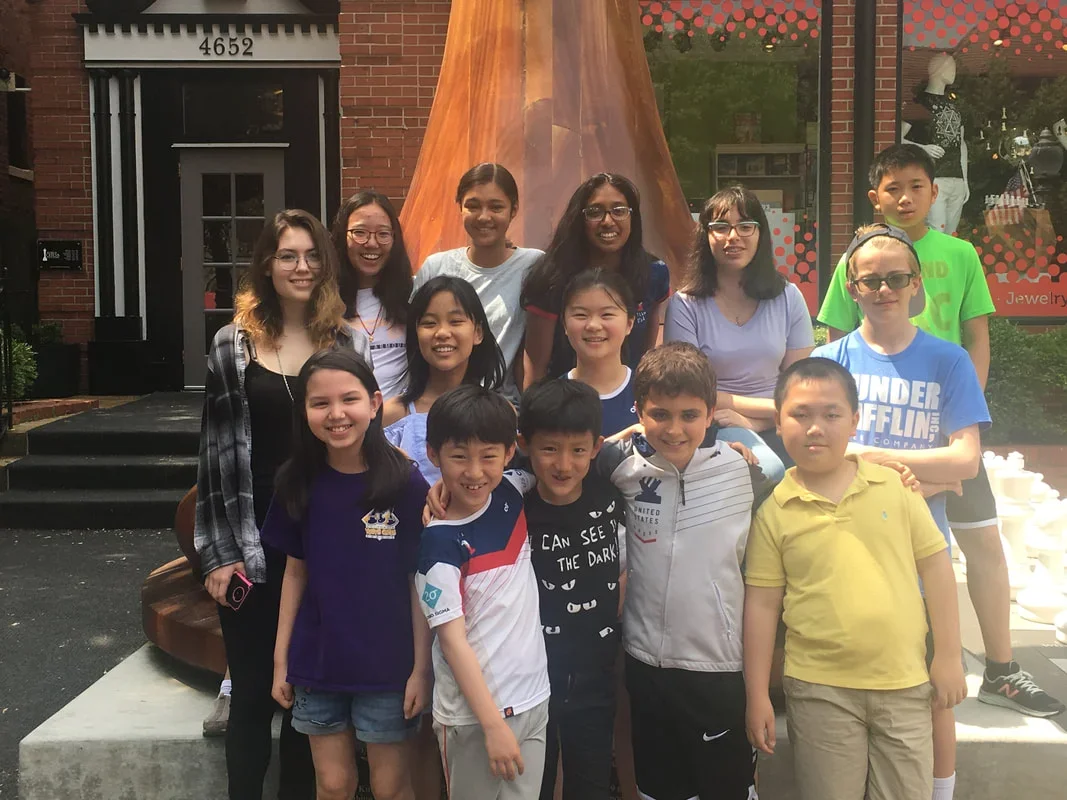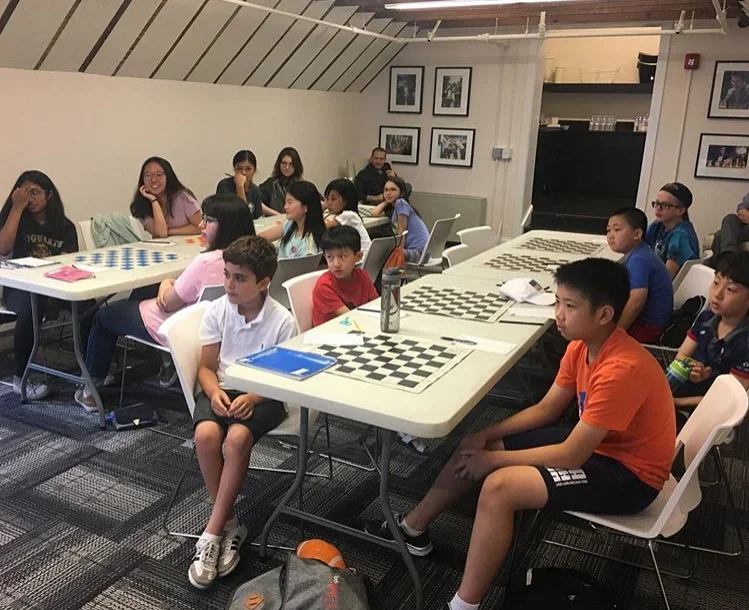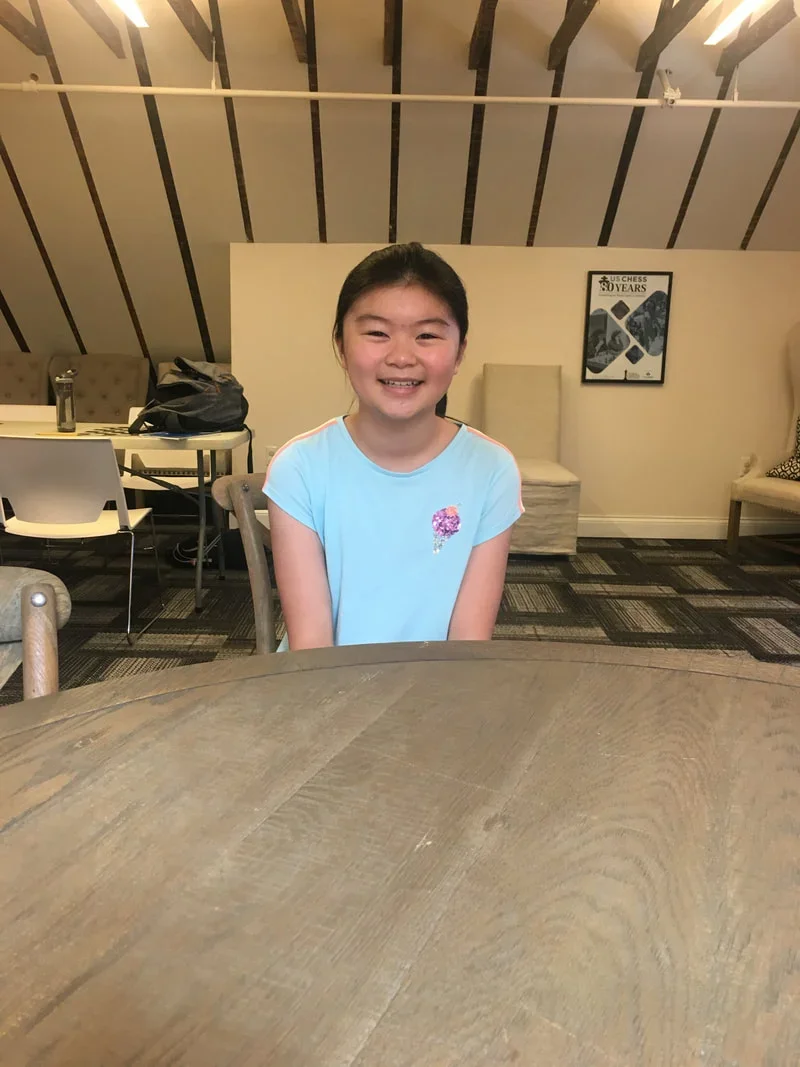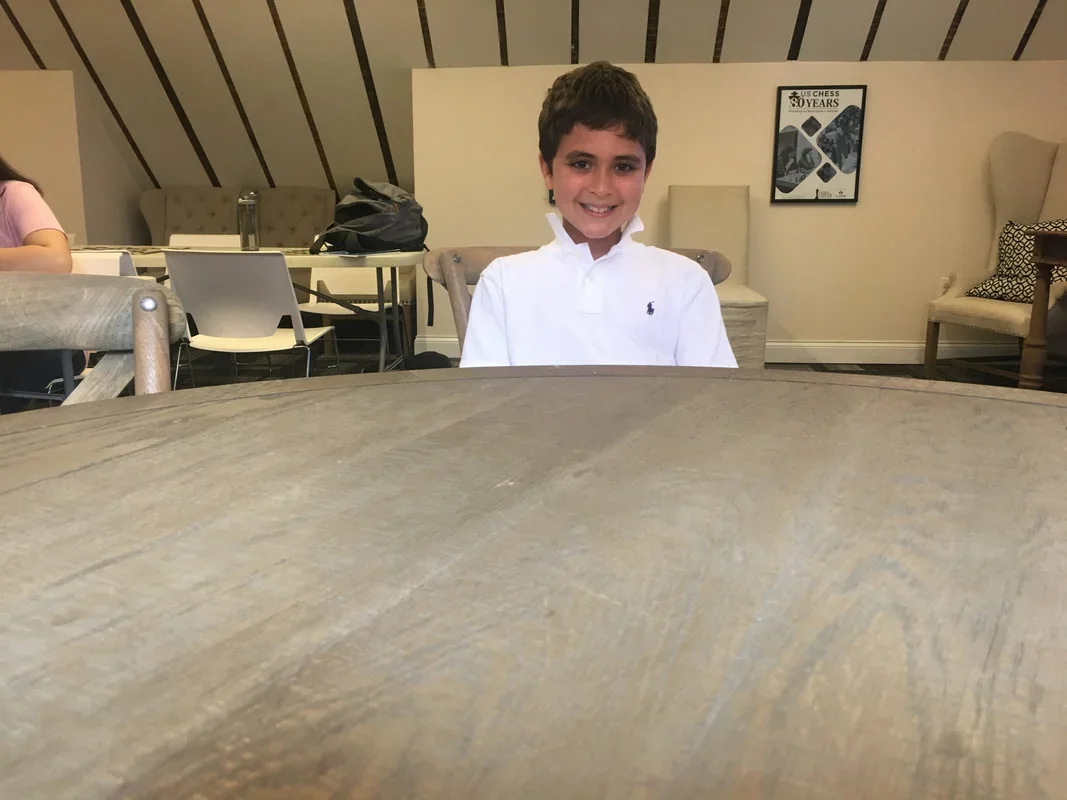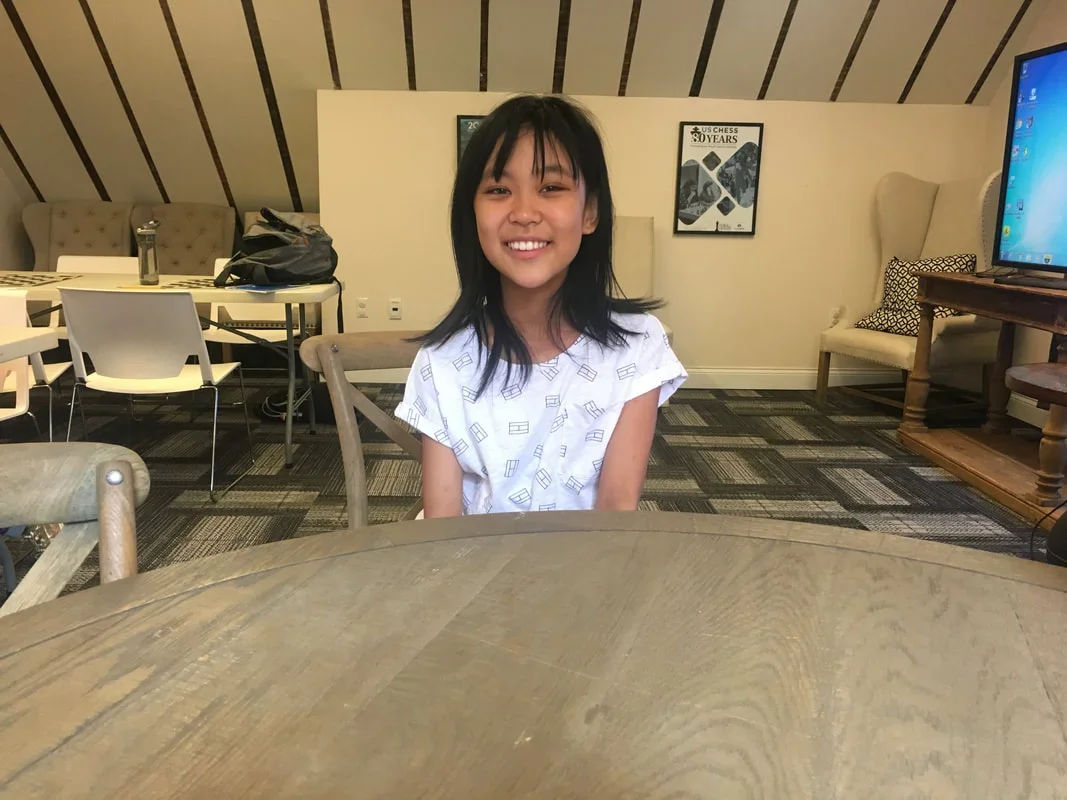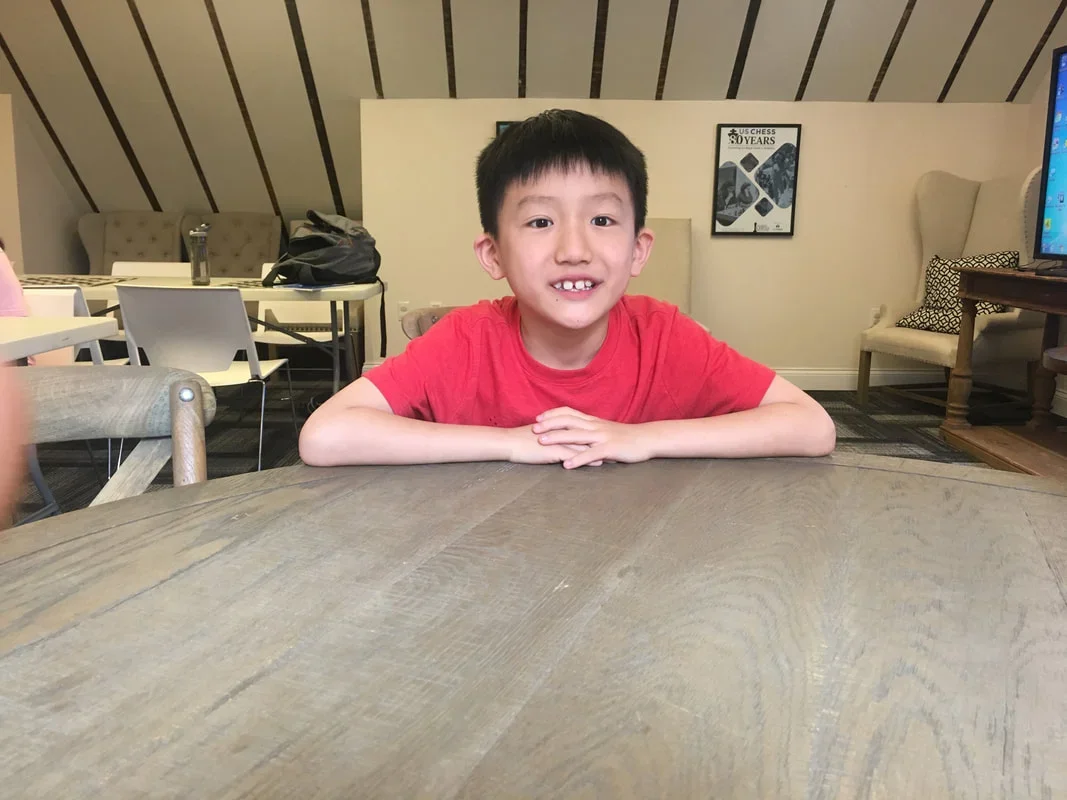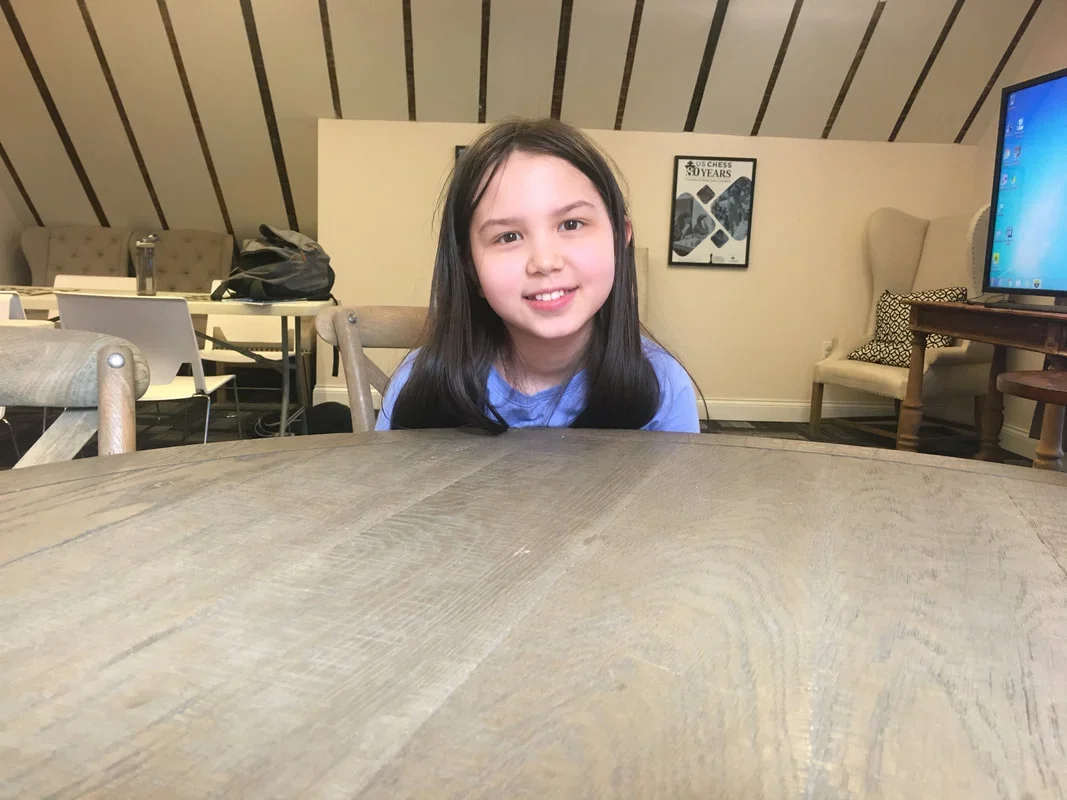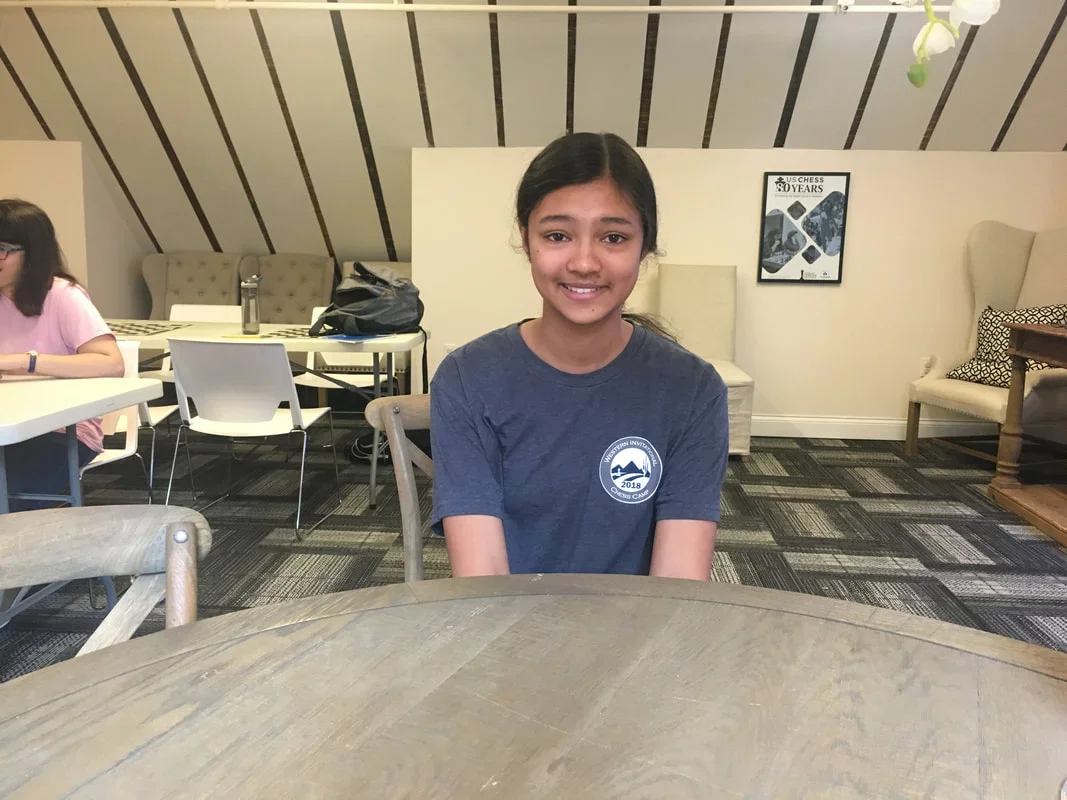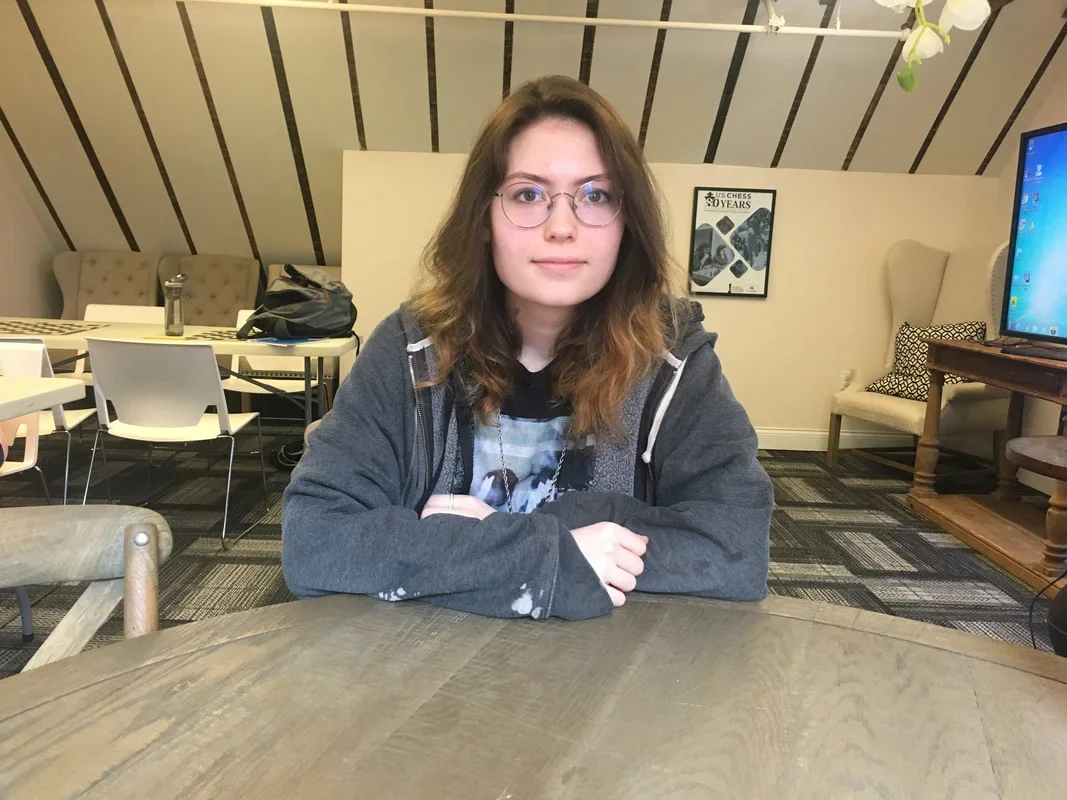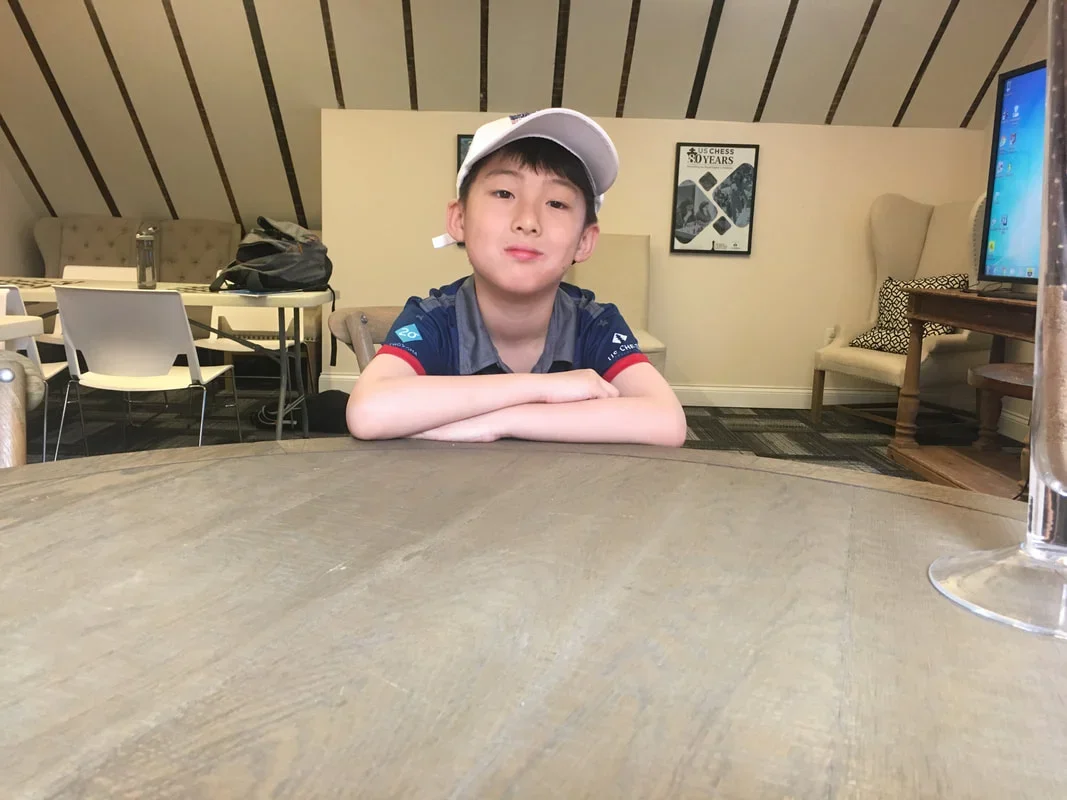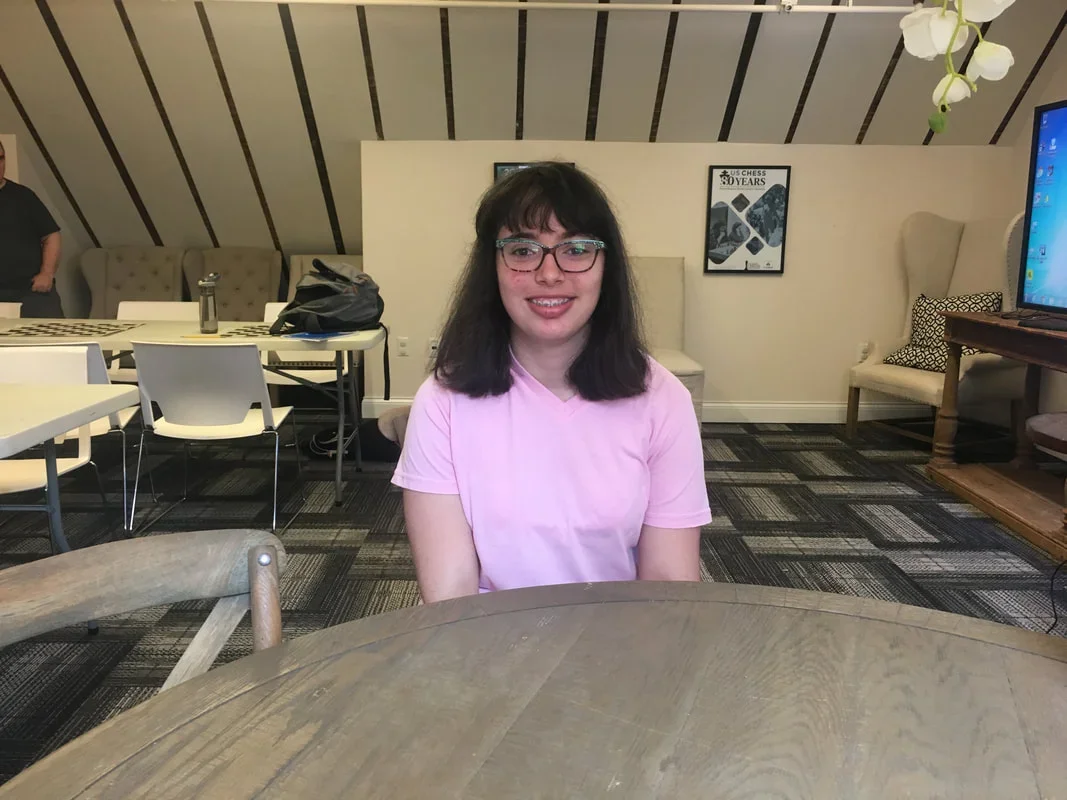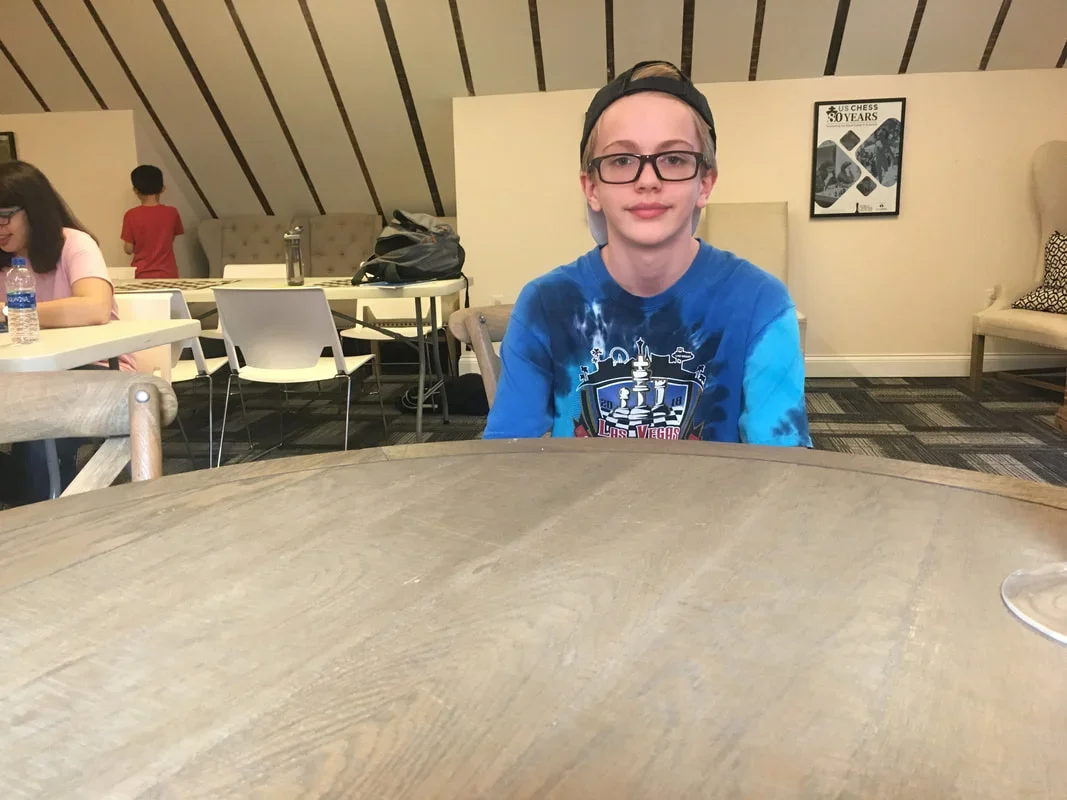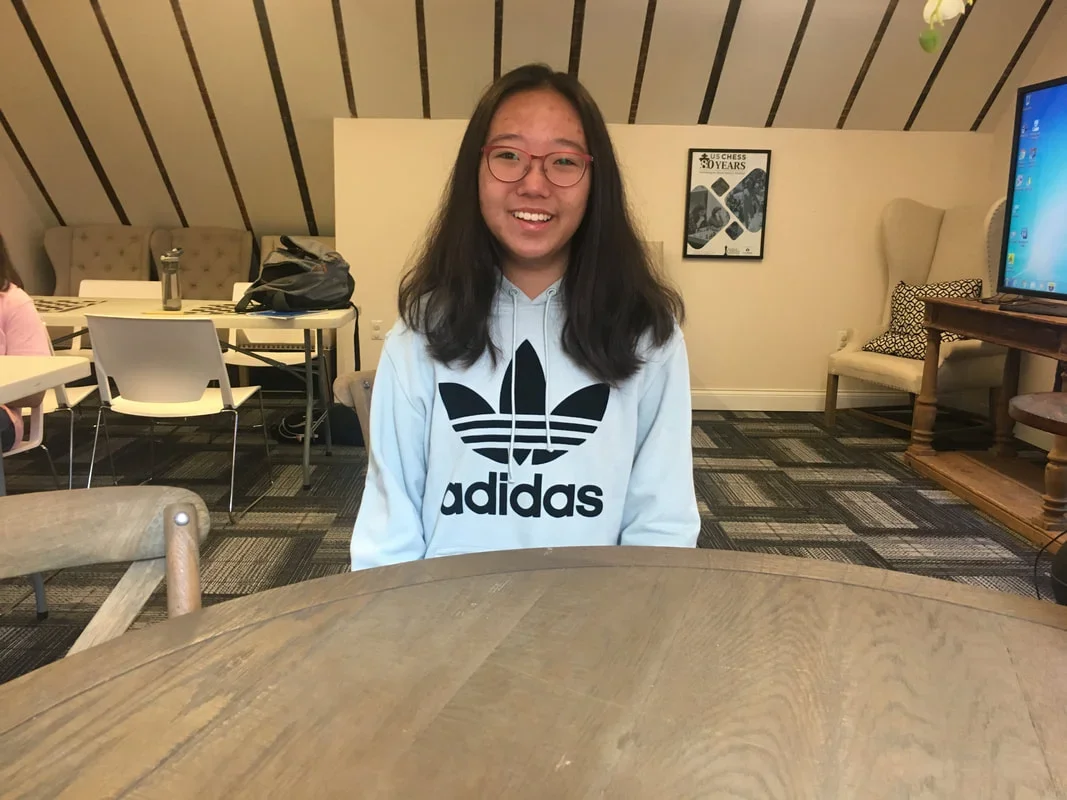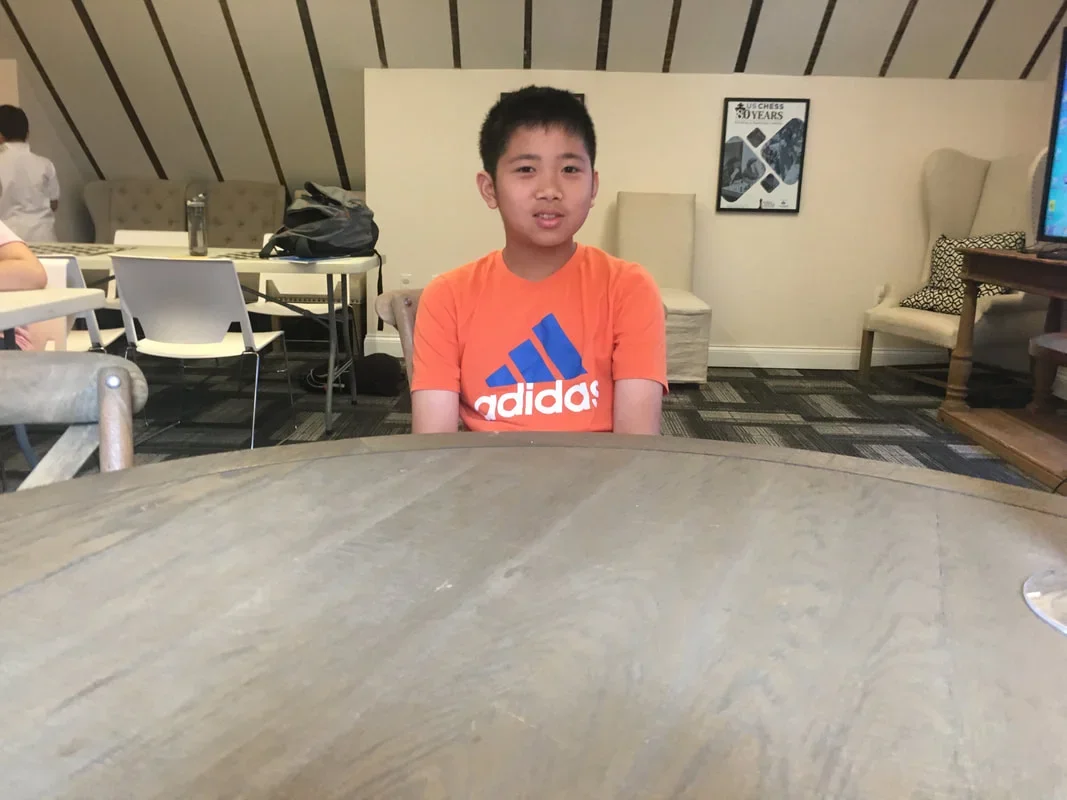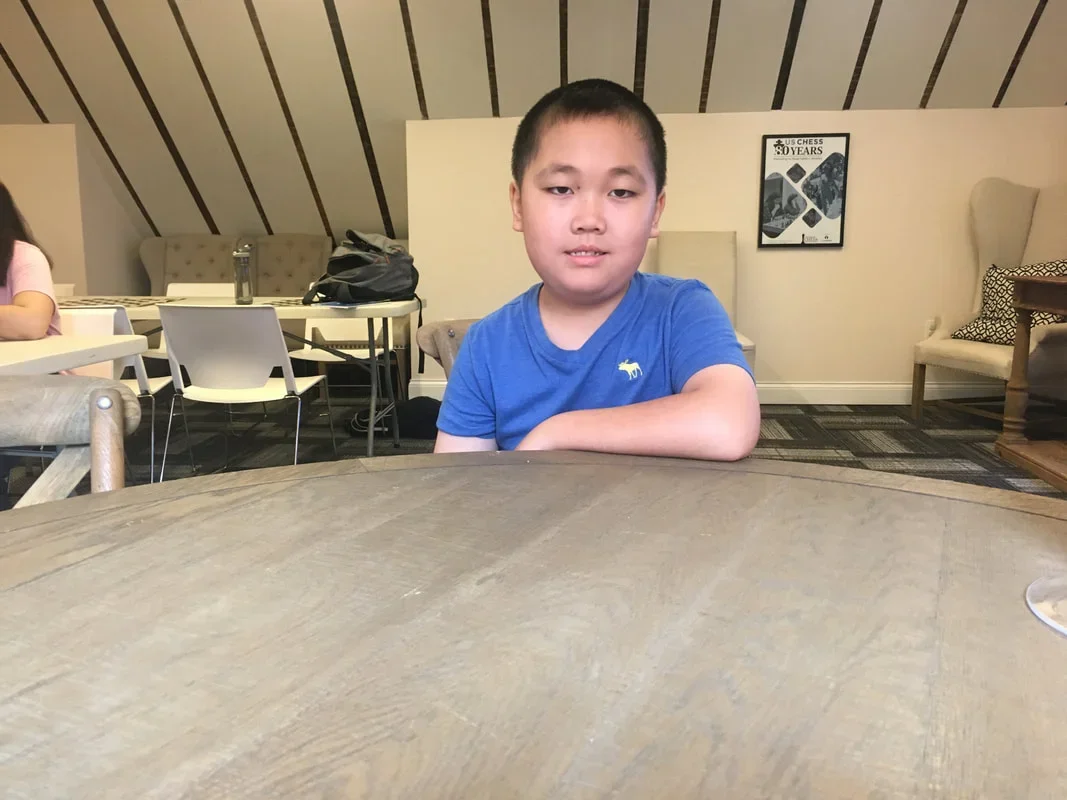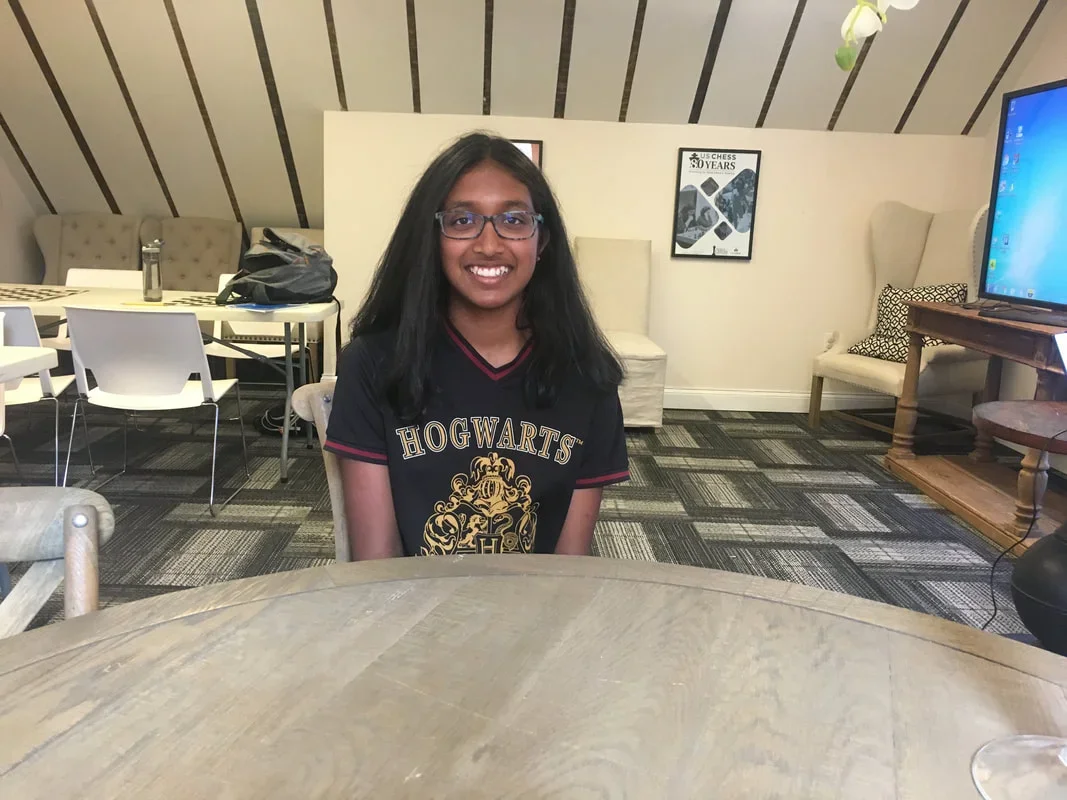This is the first of a four-part series, "Back to the US Chess School", which gives readers an inside look into the elite training academies, held over the summer. Upcoming articles will feature Davis Zong on #49, Craig Hilby on #50, and Akira Nakada on #51 I was extremely honored and lucky to be 1 of the 16 people that attended the US Chess school Camp #48 in Saint Louis. It was an otherworldly experience for me, as I was surrounded by some of the very best players in the whole country. It was so cool to meet and know people from places ranging from California to Boston. I had met a few of the students at competitions but had never had the opportunity to work with them side by side as a community of students. I realized that one of the amazing benefits of this camp was to allow us chess players to come together as a community, and I expect this will strengthen our team work at international events if we will get to represent the US together. The camp was hosted at the historic World Chess Hall of Fame, which welcomed us with the World’s largest chess piece. Across the street was the famous Saint Louis chess club, a must-see for chess fans. Overall, a very intimidating (and at the same time welcoming) atmosphere. This incredible camp was organized by Greg Shahade, a mentor and inspiration to us students. We kicked off the camp by introducing ourselves with our names, our ages, and our favorite hobbies. I noticed there were a lot of tennis players and pianists. I wonder if there is a correlation? After that, Aviv Friedman (our fearless leader and head coach) gave us a series of puzzles on different themes, but they all seemed to revolve around one concept: Having a flexible mind. In chess, once players start to embark on a plan, a very common psychological pitfall for them is to get “stuck” to their plan and lose track of other opportunities or changes in the game. When you have a flexible mind, you keep your eyes wide open to shifts and nuances in the position despite your original plan. Aviv really stressed this concept, and I do believe it is one of the most important aspects of chess. I have never gotten this training before at a camp, as conventional training techniques do not often reach into the psychological realm of chess. Here is one of the puzzles Aviv showed us:
[pgn] [Event "?"] [Site "?"] [Date "????.??.??"] [Round "?"] [White "Trading one edge for another"] [Black "Rubinstein - Marshall"] [Result "*"] [Annotator "Jed"] [SetUp "1"] [FEN "r4rk1/pp2q1pp/2n1pn2/3p2B1/8/2P3P1/P3PPBP/R2Q1RK1 w - - 0 1"] [PlyCount "27"] [SourceVersionDate "2018.10.03"] 1. c4 $1 {White has the bishop pair, so he should open the game} (1. e4 $1 { was also strong}) 1... dxc4 2. Bxc6 $1 {A great example of the flexible mind. The average player would hold on to the bishop pair for dear life, but Rubenstein has a flexible mind and gives up the bishop pair to severely damage the opponent's pawn structure. After this transaction, Rubinstein shows great technique in converting his advantage} bxc6 3. Qd4 Qd8 4. Bxf6 $1 { without minor pieces, the weak pawns will fall like leaves on a tree in autumn} Rxf6 5. Qxc4 Qd5 6. Rac1 Raf8 {Black tries to create pressure down the f-file, but it is too little, too late} 7. e4 Qh5 (7... Qxc4 8. Rxc4 {only helps White}) 8. f4 {not even giving Black a tinge of counterplay} (8. Qxc6 $6 Rh6 $1 9. h4 Qg4 {gives black unnecessary counterplay}) 8... Qa5 9. e5 Rh6 10. Rc2 $1 { defending the second rank and effectively ending Black's counterplay} Qb6+ 11. Kg2 Rd8 12. Rff2 Rc8 13. Rfd2 Kh8 14. Rd6 {and White won easily} *[/pgn]
Then, we all took a break for lunch. The area where the club is located has a lot of great restaurants, and I and my dad had lots of great choices. The first time around, we chose to go to a Thai restaurant, Thai 202, with some of my other classmates. Then, we came back, got settled, and took our seats. After that, Aviv gave us more puzzles for about two hours, the main theme being (You guessed it!) having a flexible mind. Yes, this concept is so important it takes not one, but TWO lessons to do this concept its justice. Finally, for the last hour of the first day, Aviv took the stage to give us an Intuition test. We were given two minutes for every problem, with a total of 30 problems. The test was designed, as the name suggests, to test our intuition (the ability to assess the position without calculation or reasoning). The test was ridiculously hard, and almost no one got more than 15/30. The next few days had a similar schedule. We worked on puzzles, shared insights and learned a lot. In the last hour of days 3-4, Greg would show us premature resignation puzzles. Premature resignation puzzles are when, in a position, a player resigned, but missed out on a winning shot or drawing idea. ( you can’t help but feel so bad for those guys, right?). Anyway, these puzzles often cause a lot of laughs, and by the end of the hour, I was suffering from a chronic case of overgiggleitis (Yes, I made that word up!)
White to Move and Not Resign
On the fourth day, two absolutely crucial events occurred: The first of these events commenced when Greg announced: ”time to go on a field trip!” Us campers had no idea of where the destination was until we turned right and entered… a cupcake shop! Now the cupcakes here were as incredible as the bison burger I had at Culpepper's on Wednesday (a.k.a the best burgers on earth), once again proving the fact that the food in St. Louis is like no other. After I wolfed down my cupcake in a millisecond, I immediately regretted not savoring my vanilla cupcake, as I was the first one to finish and had to only look on while others took their time. Is there a chess lesson here? The second event was the one us campers were all waiting for: The bullet tournament! (Dramatic music sounds). The tournament was in the typical knockout format, with a time limit of 10 seconds with a 1 second gain per move. Your author crashed out in the first round, as he flagged in a better endgame (Shocker!) against Ryo. However, the good news about getting out early is you can watch as pieces are thrown around the board while queens and mates are hanging everywhere. I have to say, the bullet games were actually of very high quality (There were, of course, some Blunder-fests, but a very low number). In the end, Ellen Wang ended up winning the whole thing.
By the fifth day, all us students really were acquainted with one another, and it made for a more fun working environment. The mood was cheerful, as we kept solving and solving, and we just did not want the camp to end!
However, good things don’t last forever, at the end of the day we had to say our Good-byes. The last thing Aviv showed us was the alien story. This is how it goes:
[pgn] [Event "?"] [Site "?"] [Date "????.??.??"] [Round "?"] [White "Alien Story"] [Black "?"] [Result "*"] [Annotator "Jed"] [SetUp "1"] [FEN "8/P7/BB5P/8/5NN1/3K4/p6p/k7 w - - 0 1"] [PlyCount "1"] [SourceVersionDate "2018.10.03"] {Alien story :)} 1. Kc2 {Once upon a time, there was a chess master who lived in Siberia. As you may know, Siberia is very cold, and in the winter everyone has to stay inside. So that's what the master did: Stay inside and play chess. One day, he heard a knock on his door. He opened the door, and saw.. an alien! The alien, after seeing the master study chess, demanded that the master tell him the rules of chess. The master grudgingly accepted, telling him all the rules. Then, the alien asked him to play a game of chess. Of course, the master outplayed the alien easily, and reached this position. (he was White). At this point the master just wanted the alien out of here, and it looked like the alien was going to lose on the next move(when he promotes white mates with Be5) but the alien played... h1=king! Now, Be5 would checkmate 1 king, but stalemate the other! The master tried telling the alien you cant promote to a king, but the alien wouldn't be convinced. Then, the master had an idea! He played h7. The alien, not knowing better, played a8=K, and then, the master played H8=Q, triple checkmate! The alien never came back again.} *[/pgn]
As a close to this article, I will show some of the studies we were shown at this camp:
1:Korolkov Study
White to Move and Win
[pgn] [Event "?"] [Site "?"] [Date "1956.??.??"] [Round "?"] [White "Korolikov"] [Black "?"] [Result "*"] [SetUp "1"] [FEN "4N2k/2p1p2p/2KnpP1p/5p2/8/Q7/2pp4/8 w - - 0 1"] [PlyCount "9"] [SourceVersionDate "2018.10.03"] 1. Qg3 Nxe8 (1... c1=Q+ 2. Kd7 Nxe8 3. Kxe8 Qc6+ 4. Kf8 Qa8+ 5. Kf7) 2. Qg7+ $3 Nxg7 3. f7 $3 c1=Q+ 4. Kd7 $3 d1=Q+ 5. Kc8 *[/pgn]
2: Ridiculous puzzle
White to Move and Draw
[pgn] [Event "?"] [Site "?"] [Date "2014.02.10"] [Round "?"] [White "Ridiculous Puzzle"] [Black "?"] [Result "1/2-1/2"] [Annotator "Jed"] [SetUp "1"] [FEN "1k6/2p5/K1p1P1P1/2p1pP2/P1P1pQ2/4p3/4p3/4qn2 w - - 0 1"] [PlyCount "35"] [EventDate "2014.02.10"] [SourceVersionDate "2018.10.03"] 1. Qxe5 {white to move and draw} Qa5+ 2. Kxa5 Kb7 3. Qb2+ Ka7 4. Qb8+ $3 Kxb8 5. Ka6 $1 {this motif will be repeated over and over again in this puzzle} e1=Q 6. g7 Qa5+ 7. Kxa5 Kb7 8. g8=Q e2 9. Qa8+ $1 {again} Kxa8 10. Ka6 e1=Q 11. e7 Qa5+ 12. Kxa5 Kb7 13. e8=Q Nd2 14. Qa8+ {AGAIN!!} Kxa8 15. Ka6 Nxc4 16. f6 Nd6 17. f7 Nxf7 18. a5 1/2-1/2[/pgn]
3: Afek Study
White to Move and Win
[pgn] [Event "2.c tt21#3234"] [Site "?"] [Date "1977.??.??"] [Round "?"] [White "Afek=Y"] [Black "[+0014.11e5d2"] [Result "1-0"] [SetUp "1"] [FEN "8/8/8/2p1K3/1NP5/8/3k4/n2B4 w - - 0 1"] [PlyCount "9"] [EventDate "1977.??.??"] [SourceVersionDate "2018.10.03"] 1. Nc2 (1. Ba4 $2 cxb4 2. c5 b3 3. Bxb3 Nxb3 4. c6 Na5 5. c7 Nc6+) (1. Na6 $2 Kxd1 2. Nxc5 Nc2 3. Na6 (3. Nd3 Na3) (3. Nb3 Nb4 4. Kd4 Kc2 5. Nc5 (5. Na5 Na6) 5... Nc6+ 6. Kd5 Na5) 3... Ne3 4. c5 Nc4+ 5. Kd5 Na5) 1... Nb3 2. Na1 (2. Ne3 $2 Na5 3. Ke4 Nxc4) 2... Nxa1 (2... Na5 3. Nb3+ (3. Bb3 $2 Kc3)) 3. Ba4 Kc3 4. Kd5 Kb4 5. Bd1 1-0 [/pgn]
I really can't thank Greg Shahade, Aviv Friedman, Jim Roberts and the Saint Louis Chess Club enough for making this camp possible. Stay posted with the US Chess School on their website, instagram and twitter.
Categories
Archives
- January 2026 (6)
- December 2025 (27)
- November 2025 (29)
- October 2025 (39)
- September 2025 (27)
- August 2025 (29)
- July 2025 (43)
- June 2025 (25)
- May 2025 (24)
- April 2025 (29)
- March 2025 (29)
- February 2025 (20)
- January 2025 (24)
- December 2024 (34)
- November 2024 (18)
- October 2024 (35)
- September 2024 (23)
- August 2024 (27)
- July 2024 (44)
- June 2024 (27)
- May 2024 (31)
- April 2024 (51)
- March 2024 (34)
- February 2024 (25)
- January 2024 (26)
- December 2023 (29)
- November 2023 (26)
- October 2023 (37)
- September 2023 (27)
- August 2023 (37)
- July 2023 (47)
- June 2023 (33)
- May 2023 (37)
- April 2023 (45)
- March 2023 (37)
- February 2023 (28)
- January 2023 (31)
- December 2022 (23)
- November 2022 (32)
- October 2022 (31)
- September 2022 (19)
- August 2022 (39)
- July 2022 (32)
- June 2022 (35)
- May 2022 (21)
- April 2022 (31)
- March 2022 (33)
- February 2022 (21)
- January 2022 (27)
- December 2021 (36)
- November 2021 (34)
- October 2021 (25)
- September 2021 (25)
- August 2021 (41)
- July 2021 (36)
- June 2021 (29)
- May 2021 (29)
- April 2021 (31)
- March 2021 (33)
- February 2021 (28)
- January 2021 (29)
- December 2020 (38)
- November 2020 (40)
- October 2020 (41)
- September 2020 (35)
- August 2020 (38)
- July 2020 (36)
- June 2020 (46)
- May 2020 (42)
- April 2020 (37)
- March 2020 (60)
- February 2020 (38)
- January 2020 (45)
- December 2019 (34)
- November 2019 (35)
- October 2019 (42)
- September 2019 (45)
- August 2019 (56)
- July 2019 (44)
- June 2019 (35)
- May 2019 (40)
- April 2019 (48)
- March 2019 (61)
- February 2019 (39)
- January 2019 (30)
- December 2018 (29)
- November 2018 (51)
- October 2018 (45)
- September 2018 (29)
- August 2018 (49)
- July 2018 (35)
- June 2018 (31)
- May 2018 (39)
- April 2018 (31)
- March 2018 (26)
- February 2018 (33)
- January 2018 (30)
- December 2017 (26)
- November 2017 (24)
- October 2017 (30)
- September 2017 (30)
- August 2017 (31)
- July 2017 (28)
- June 2017 (32)
- May 2017 (26)
- April 2017 (37)
- March 2017 (28)
- February 2017 (30)
- January 2017 (27)
- December 2016 (29)
- November 2016 (24)
- October 2016 (32)
- September 2016 (31)
- August 2016 (27)
- July 2016 (24)
- June 2016 (26)
- May 2016 (19)
- April 2016 (30)
- March 2016 (36)
- February 2016 (28)
- January 2016 (32)
- December 2015 (26)
- November 2015 (23)
- October 2015 (16)
- September 2015 (28)
- August 2015 (28)
- July 2015 (6)
- June 2015 (1)
- May 2015 (2)
- April 2015 (1)
- February 2015 (3)
- January 2015 (1)
- December 2014 (1)
- July 2010 (1)
- October 1991 (1)
- August 1989 (1)
- January 1988 (1)
- December 1983 (1)


